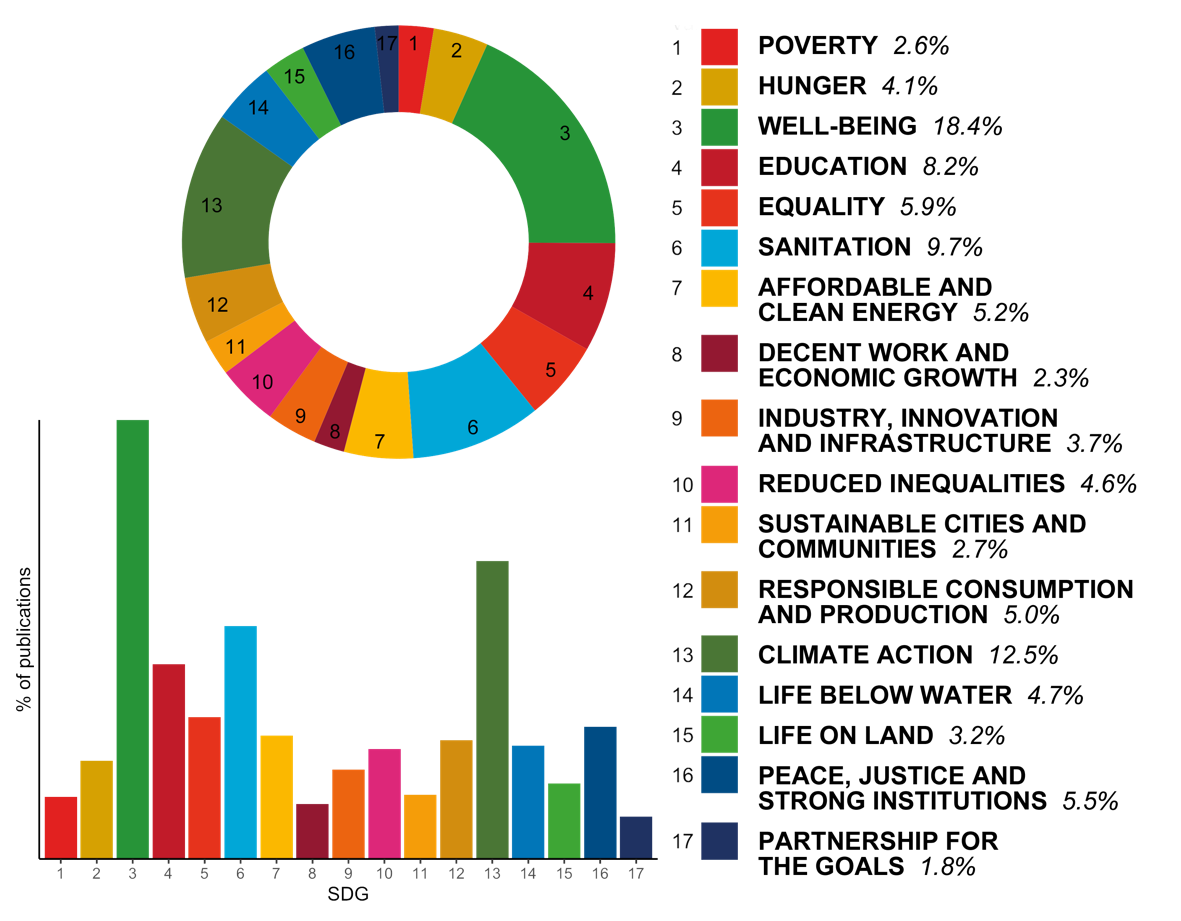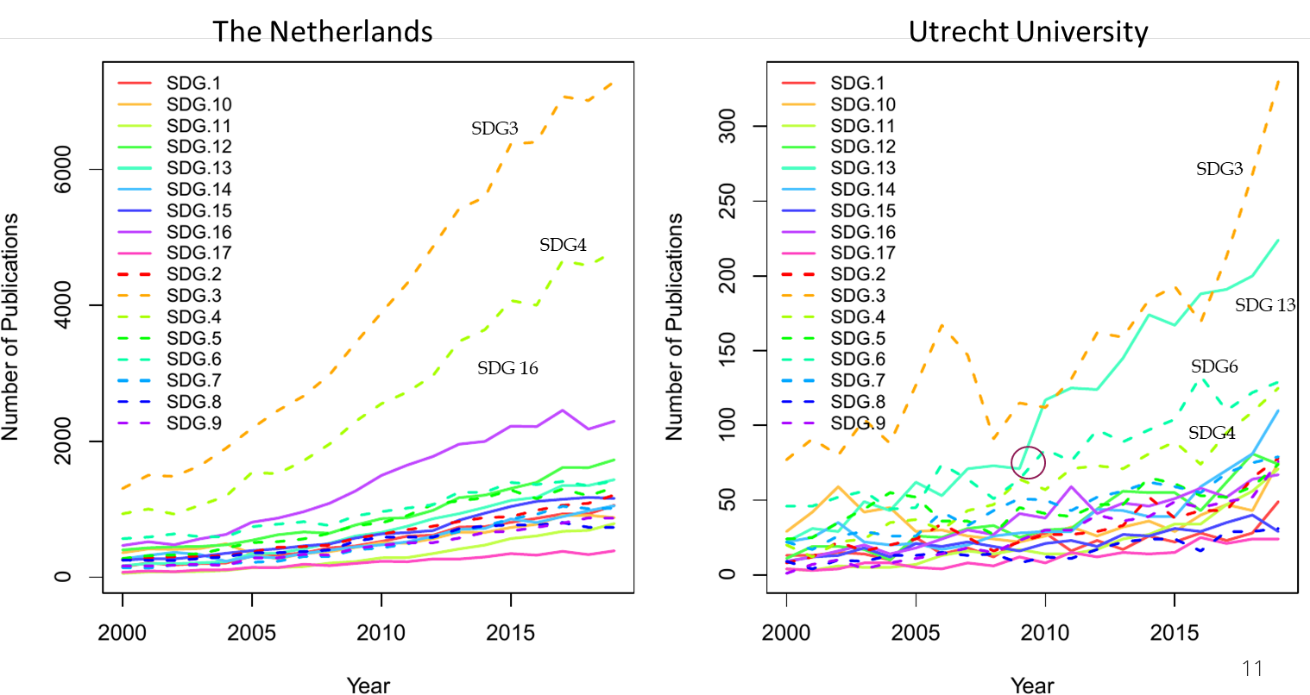Strong increase in Utrecht research on SDGs
Research into the UN Sustainable Development Goals (SDGs) is showing strong annual growth at Utrecht University and covers all SDGs. This is shown in an analysis by eight scientists led by Johan Schot (Centre for Global Challenges) and Gaston Heimeriks. They mapped the rise of SDG-related research in the period of 2000-2019 and looked at interactions between research groups. This provides a wealth of information on how the (interdisciplinary) research by Utrecht University has impact and how this can be further increased.
SDG research at Utrecht University
When it comes to solving the problems of the world, we aim high. We want to give direction to necessary transformations. Therefore, our research and teaching focus on today's big global challenges. The United Nation's Sustainable Development Goals (SDGs) are a major guiding principle for us in our research and education.
Rapid growth and many interactions
The study shows that Utrecht University's research efforts on the SDGs have grown rapidly in the period after 2000. The university covers all SDGs, but there are focal points of research around health and well-being (SDG 3), climate change (SDG 13), and clean water and sanitation (SDG 6). Compared to the national trend, Utrecht University is particularly strong in research related to SDG 13 which focuses on the needs of developing countries in the transition to a low-carbon economy to mitigate the effects of climate change. The analyses show that there are many interactions between different research groups with an SDG focus and with groups doing other research.

New methodology
The study uses a new methodology developed by the research team that focuses on the need for research to contribute to a transition or systemic change of the economy and society. Schot: "This requires research that relates the SDGs to each other. This type of interdisciplinary research in which links are made between research into the development of new forms of energy, mobility, water, food, health provision, research aimed at reducing poverty, inequality, improving biodiversity, and climate and research into conditions under which the transition can take place is present at Utrecht University but can still be strengthened."

New standard
President of the Executive Board Anton Pijpers is pleased that the study is here. "When it comes to solving the world's problems, Utrecht University sets its sights high," he says. "The university works together with partners around four important strategic themes and wants to give direction to necessary transformations. The Sustainable Development Goals (SDGs) of the United Nations are an important guideline in this." Together, these form a global and integrated agenda for tackling social, economic and environmental challenges. The development of new knowledge has a central place in this. Pijpers: "Universities therefore have a great responsibility to contribute to the realisation of these objectives. The research conducted by Johan Schot and other colleagues helps us to evaluate and further enhance this contribution. A new method has been developed that produces a knowledge map of Utrecht University's research and goes much further than a simple ranking. This fits in with the Utrecht University's policy. The method could become a new standard for measuring the contribution of research to SDGs."
The research was conducted by: Jolynde Vis, Oscar Yandy Romero-Goyeneche, Felber Arroyave, Enric Villasante, Gaston Heimeriks, Johan Schot, Joost de Laat


